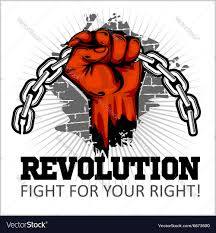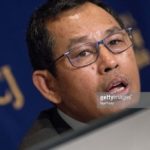Revolutions, Revolutionaries, and Me the Facebook Ninja
TRANSCEND MEMBERS, 20 Jul 2020
Maung Zarni – TRANSCEND Media Service
15 Jul 2020 – Like young Burmese kids whose hearts leap at the sight of a candy floss being spun on the machine at pagoda festivals – which Mandalay holds monthly – I get excited, perhaps too excited, upon hearing the word REVOLUTION or sensing the emergence of revolutionary conditions.
At a tender age, I was turned on by tales of subversion of repressive political authority or defiance of unjust laws and social order. Retroactively, I hold my beloved mother who impressed upon me that revolutions and revolutionaries, not to mention political defiance and civil disobedience, are noble, worthy of giving up one’s life, career, property, family and all the rest.
I don’t write these words with my tongue in cheek.
My mother was the first woman from her large family of 10 children who was sent to the university in town. She came from an old Mandalay family that had been a part of the Court’s inner circle for as long as family oral history remembers. That ended with the arrival of New Masters, the British, in 28 November 1885 as the last king, her 4th generation grandfather’s boss, surrendered to the superior British expeditionary forces. My mother was born on 29 Nov 1938. Many of us Mandalay’s people from the old feudal order who grew up with a profound sense of personal humiliation by the sovereign’s disgraceful fact – as opposed to fighting till the last breath. For a strong patriot, surrender has never been an option. Resistance and revolt were the only two acceptable options. 
I never had any serious discussion with my mother about our history or even our family’s except some funny family anecdotes. The past was something we never talked about. As a trained historian, my mother would have been able to hold a fairly objective conversation with me over our political history, her growing oldest boy with a keen interest in politics and history. But I was way too busy with school, sports and, in my teenage years, girls, more like composing love poems for them than being successful at chasing them! And she too was busy, teaching high school history full time, raising 4 boys and 4 girls, and cooking for the family!
But her bedtime or leisure stories left a deep and inerasable impact on my mind. You see my mother was peripherally involved in leftist politics at the university – rooting for the Democratic Front student organization in its contest for Student Union leadership at Mandalay University (and my father was, I was told, frolicking with rich classmates and partying). I was born in 1963, just one year after the military ended Burma’s experiment with parliamentary democracy and all forms of political activism not sponsored by the Socialist Party set up by the military were banned. So, her stories of campus activism and progressive agitation captivated my active mind.
Maybe the loss of status, wealth and influence wrought by the British colonial rule which dislodged her family’s royal employer made her drawn to the leftist politics and ideologies which reject categorically all forms of domination, exploitation and unjust hierarchies. Who knows?!
Be that as it may, one day, my mother was reminiscing about the bygone progressive days during which well-known labour activists would stage hunger strikes and engage in picketing. I vividly remember her telling me the stories of labour strikers and student activists, rather admiringly so much so that her tales left me with a moral lesson – and emotional imprint: yes, strikes, acts of defiance, boycott and resistance against greedy employers or repress police state are honourable, welcome and to be highly pursued!
She and my father were not the type of people who did not say what they meant: they were straight and strict. When I saw them on the Thai-Burmese border in the summer of 1997 – for 24 hrs, a day and a night – they were emphatic that they did not want me to give up my opposition to the military, under any circumstances.
When I thought that I would change tract and engage with some in the military who said they wanted to reconcile with dissidents and work together for reforms, my mother was quietly upset. And she whispered, “These guys (the generals) are beyond redemption and reforms. There is nothing you can do to make the situation here better. So, go back to your exile. I miss you. But I want you to go.” That was November 2005 when I saw her at a military guest house in Southern part of Mandalay where I was sequestered as a “VIP” guest of the military leadership.
Both my parents were convinced only a revolution – they meant violent and armed – would smash the military’s vice-like grip on power and politics in our country.
They knew. Their own brothers and other close relatives were in the nation’s armed forces, some since its inception under Japan’s Fascist patronage during the World War II. Like all self-styled patriots of Mandalay, they too grew up with admiration for the Tatmadaw or military. But they had given up any form of reforms, peace, democracy or freedom under the military.
My parents are no more. But their words, especially my mother’s, reverberate in my mind’s ears.
With that acute awareness, I always sit up and listen whenever I hear the words revolutions or revolutionaries. I had two close friends, one is no more, and the other in his mid-80’s. One was an old American friend of Russian Jewish ancestry who grew up in New York City, and his parents owned print shop, and were involved in labour organizing. When I became very good friends with him he was already in his mid-80s. We would meet up for meals or drinks at his home on Massachu, and talked politics, Burma, world affairs, etc. His name was Louis Walinsky. He lived in Rangoon for 5 years in the 1950’s, as the American economic adviser to the democratic gov of U Nu. In one of the conversations, I mentioned radicalisms in US political history, and the famed anarchist Emma Goldman’s name came up. His wrinkly face lit up, and said with a big proud smile, “you know I sat on Emma’s laps.” As an activist, I could only feel nothing but envious.
Another envious moment was when I was told by a friend, “I that a close friend of mine, met Gandhi. He is Professor Kyaw Win, Burmese dissident and retired academic, still alive and kicking in his retirement, in the mountains outside Boulder, Colorado. His father was a British-educated Christian pastor and community leader who attended the reception for Gandhi, who came to visit the old Burma and met with Burmese nationalists of all faiths. Uncle Kyaw Win accompanied his father to meet with Gandhi. And the famed Non-violence leader patted the young Kyaw Win’s head, affectionately.
These conversations took place many moons ago. And I remain envious that they remember such moments worthy of reproducing at cocktail parties – and beyond.
I struggle to recollect a shred of memory of playing with the only executed military officer who attempted to pull off an assassination plot and coup against General Ne Win – in 1976. Captain Ohn Kyaw Myint was an aide de camp (ADC) to the Deputy Chief of Staff – Army, and he was my parents’ classmate and friend in the late 1950s at Mandalay University. In his sophomore year he left the university to attend the officers’ training school, and rose through the ranks as a special commando.
By early 1970’s the military-sponsored Burmese Way to Socialism was proven a complete and utter disaster. The state was becoming progressively repressive and Neanderthal. Ne Win was showing feudal characteristics, imagining himself to be a descendant of the old Mandalay throne. A group of ADCs and other officers at the General Staff decided that they had no choice but to plot to take the top 5 corrupt dictators out, and put in charge of the state the kinder and more liberal General Tin Oo, now – Suu Kyi’s deputy chair in his early 90s. Ohn Kyaw Myint was the ring-leader.
Years later I interviewed one of the surviving members of the coup group, ex-Captain Thant Zin Myaing, who has then immigrated to USA. I learned the details of the abortive coup, and the steely-willed ring leader who never uttered a single name of his co-conspirator – That was how Thant Zin Myaing survived. The military intelligence torturers did not know the extent of his involvement. For the ringleader Ohn Kyaw Myint walked up to the gallows without spilling any beans. To me, he remains a hero – a revolutionary – who tried to do the right thing, and paid the ultimate price.
It was 1976. I was 13, and in my middle school year. And I remember my parents looking quite grief-stricken, and remember the overheard conversation one evening. My father asked my mom, “Did you see the monks in front of the house this morning?” My mother said, “Yes.” That was it. Ohn Kyaw Myint’s wife was from Mandalay. The sight of Buddhist monks in that fateful morning signaled that they were there to perform the last Buddhist rite as Ohn Kyaw Myint was hang inside Insein prison in Rangoon very early morning the same day.
Some years later when I was in the university, my parents told me that Ohn Kyaw Myint would pop in at our home when he passed through Mandalay. A gentle soul with a poetic mind – he and my mother and a few of their friends co-founded a Maw literary club as students at their university, he would get down on his knees to play with me, a toddler.
That is one precious memory I have never been able to recall much as I have tried.
As the French Revolution was commemorated as the Republic Day in France – yesterday – I felt like I wanted to pay homage to both my parents, particularly my mother, who instilled in me the revolutionary spirit and others who risked and lost everything in hopes of a better, fairer future.
Revolutionary is a very grand word I am reluctant to use in reference to myself, or my mother or father.
Revolutions come in different forms and at different speeds. Many are failures, but worthy failures. Revolutionaries too come in different forms.
What do you call a mother who insisted that the son stick with his hard revolutionary choices, at the expense of her own motherly love? Or the father who said, “Don’t ever come back if you don’t succeed in overthrowing the murderous regime.”? I am proud to call my parents revolutionaries posthumously.
On the French Day – 14 July – FRC released the podcast with Tapan Bose, another under-stated and self-effacing revolutionary – who too would shy away from the word in self-reference. I felt a lot better about my life of 56 years, when an older Indian brother in his 70’s, said in our podcast conversation, that he left home after university, and decided that he would not pursue a career, but be an activist to fight worthy progressive causes. (I am paraphrasing him here). He has gone on to do that for 50 years, and still has food on the table!
Over the last 20+ years, in between my academic jobs – which I was prone to give up as if they were temp positions! – I told Dewi, my older daughter, now almost 21, that “daddy’s job is to fight the bad government in Burma”. Her classmates’ parents in pre- and primary schools at Berkeley had respectable careers like doctors, architects, professors, and what not. So, I wanted to make sure my daughter felt her daddy, a political exile, too had a job!
These days, I am rather content with the honour that Nilah, my younger daughter bestowed on me, “a Facebook ninja”.
Viva la Revolution!
___________________________________________
A Buddhist humanist from Burma, Maung Zarni is a member of the TRANSCEND Network for Peace Development Environment, former Visiting Lecturer with Harvard Medical School, specializing in racism and violence in Burma and Sri Lanka, and Non-resident Scholar in Genocide Studies with Documentation Center – Cambodia. Zarni s the co-founder of FORSEA, a grass-roots organization of Southeast Asian human rights defenders, coordinator for Strategic Affairs for Free Rohingya Coalition, and an adviser to the European Centre for the Study of Extremism, Cambridge. Zarni holds a PhD (U Wisconsin at Madison) and a MA (U California), and has held various teaching, research and visiting fellowships at the universities in Asia, Europe and USA including Oxford, LSE, UCL Institute of Education, National-Louis, Malaya, and Brunei. He is the recipient of the “Cultivation of Harmony” award from the Parliament of the World’s Religions (2015). His analyses have appeared in leading newspapers including the New York Times, The Guardian and the Times. Among his academic publications on Rohingya genocide are The Slow-Burning Genocide of Myanmar’s Rohingyas (Pacific Rim Law and Policy Journal), An Evolution of Rohingya Persecution in Myanmar: From Strategic Embrace to Genocide, (Middle East Institute, American University), and Myanmar’s State-directed Persecution of Rohingyas and Other Muslims (Brown World Affairs Journal). He co-authored, with Natalie Brinham, Essays on Myanmar Genocide.
Tags: Civil Disobedience, Human Rights, Revolution
This article originally appeared on Transcend Media Service (TMS) on 20 Jul 2020.
Anticopyright: Editorials and articles originated on TMS may be freely reprinted, disseminated, translated and used as background material, provided an acknowledgement and link to the source, TMS: Revolutions, Revolutionaries, and Me the Facebook Ninja, is included. Thank you.
If you enjoyed this article, please donate to TMS to join the growing list of TMS Supporters.

This work is licensed under a CC BY-NC 4.0 License.

